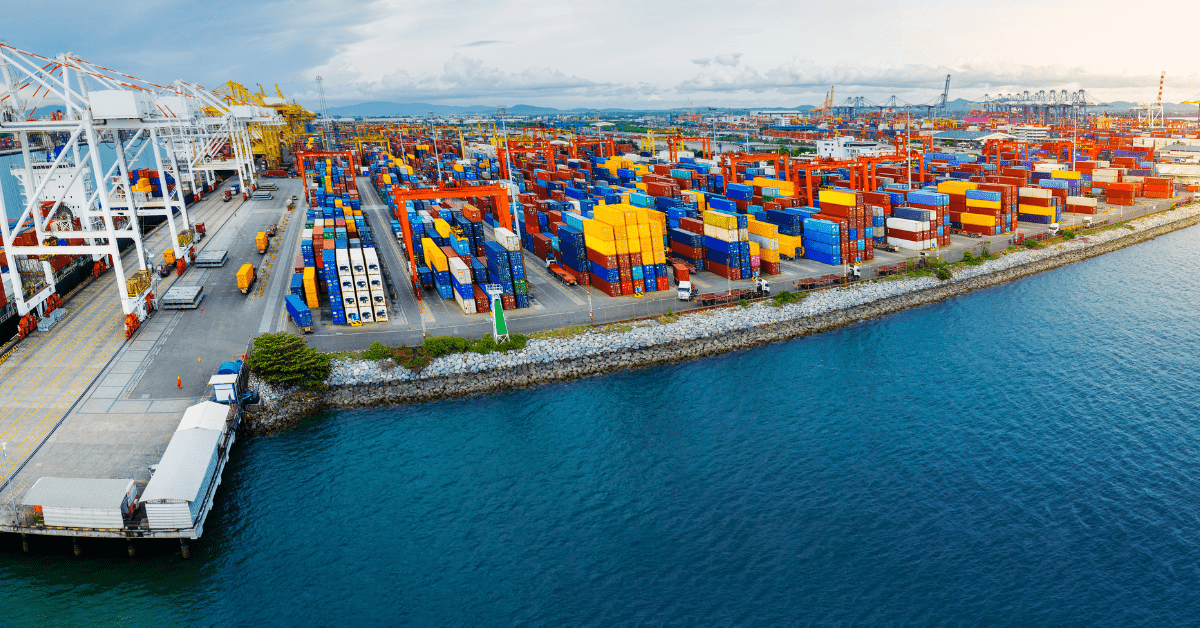
Freight Forwarder vs Third Party Logistics, So you’re trying to figure out whether you should use a freight forwarder or a third-party logistics provider (3PL) for your shipping needs? You’ve come to the right place! As an experienced logistics professional, let me break down the key differences between these two important players in the supply chain.
What is a freight forwarder?
In short, a freight forwarder acts as an intermediary between you (the shipper) and various transportation providers. Their primary role is to arrange the transport of your goods from point A to point B by land, sea, or air.
Some of the typical services offered by freight forwarders include:
- Securing cargo space with shipping lines
- Booking and arranging haulage
- Preparing documentation and customs clearance
- Providing warehousing if needed
- Offering supply chain visibility through tracking and tracing
- Managing freight claims
Freight forwarders like Universal Relocations have established relationships with carriers around the world, which allows them to secure highly competitive rates for transport. This can be especially helpful for smaller shippers who lack the volume leverage with logistics providers.
What does a 3PL provide?
A third-party logistics (3PL) provider offers a more extensive range of supply chain services than a standard freight forwarder. These services may include:
- Transportation management
- Warehousing and fulfillment
- Inventory management
- Order processing
- Packaging and assembly
- Supply chain analytics
- Customs Brokerage
- Carrier management
- Logistics consulting
So in short, a 3PL acts as your outsourced logistics department. They provide customized solutions and end-to-end management of complex logistics operations. This allows you to focus on your core business strengths rather than coordinating various aspects of your supply chain.
Freight Forwarder vs Third Party Logistics: Understanding Key Differences
While there can be some overlap in services, there are a few key differences between freight forwarders and 3PL providers:
- Asset ownership – Freight forwarders generally don’t own any logistics assets (planes, vehicles, warehouses), while 3PLs often do.
- Scope – 3PLs provide broader supply chain solutions versus freight forwarders’ focus on transportation.
- Customization – 3PLs create customized solutions, while freight forwarders offer more standardized services.
- Strategic capabilities – 3PLs provide higher-level strategic logistics consulting. Freight forwarders offer more tactical transportation execution.
- Customer type – Smaller shippers more commonly use freight forwarders, while large enterprises often partner with 3PLs.
- Technology – 3PLs invest more in technology like WMS, TMS, EDI, and supply chain visibility tools.
- Contracts – 3PL engagements are often longer-term contracted partnerships versus transactional forwarder interactions.
So in summary, freight forwarders provide tactical transportation services, while 3PLs offer strategic supply chain solutions and end-to-end logistics management.
When to use a freight forwarder
Here are a few examples of when it makes sense to use a freight forwarder:
- You have a one-time or infrequent shipping need – Freight forwarders excel at arranging cargo transport for shippers with sporadic shipping needs using their carrier relationships to get competitive rates.
- Your logistics needs are straightforward – If you just need reliable transportation but don’t require extensive supply chain services, a freight forwarder gets the job done.
- You have limited shipment volumes – Forwarders can provide customized services even if you don’t ship enough to justify a full 3PL solution.
- You need customs brokerage – Freight forwarders act as customs brokers and manage the clearance process seamlessly.
- You want better carrier rates – Forwarders provide smaller shippers access to discounted carrier rates you couldn’t secure on your own.
When to use a 3PL provider
Here are some instances when partnering with a 3PL makes sense:
- You want to outsource logistics activities – Let 3PL experts manage complex supply chain functions like transportation, fulfillment, and inventory so you can focus on your core business.
- Your logistics needs are complicated or global – For multifaceted logistics with cross-border shipping, lean on an advanced 3PL with proven expertise.
- You want to improve supply chain efficiency – 3PLs have the technology and processes to optimize your end-to-end workflow.
- You need transparency and visibility – Robust 3PL technology offers real-time tracking and analytics on shipments and inventory.
- You seek strategic logistics guidance – 3PLs provide high-level consulting to elevate your supply chain capabilities.
- You expect rapid business growth – Quickly scale your logistics operation with an adaptable 3PL who can handle expanding order volumes.
Selecting the right logistics partner
The key takeaways from this breakdown are that freight forwarders offer tactical transportation services using their carrier relationships, while 3PLs deliver more strategic, customized supply chain solutions with end-to-end logistics management. It makes sense to use freight forwarders for sporadic, simple shipping needs requiring customs expertise. However, you’ll want to leverage 3PLs if you need to optimize complex global logistics or outsource non-core supply chain functions.
Hopefully, Freight Forwarder vs Third Party Logistics comparison provides some clarity on when it’s best to engage a freight forwarder versus partnering with a full-service 3PL. Feel free to reach out if you need any additional guidance on selecting the ideal logistics solutions for your unique business needs. I’m always happy to help shippers find the right supply chain partners.

 800-13-7356
800-13-7356
